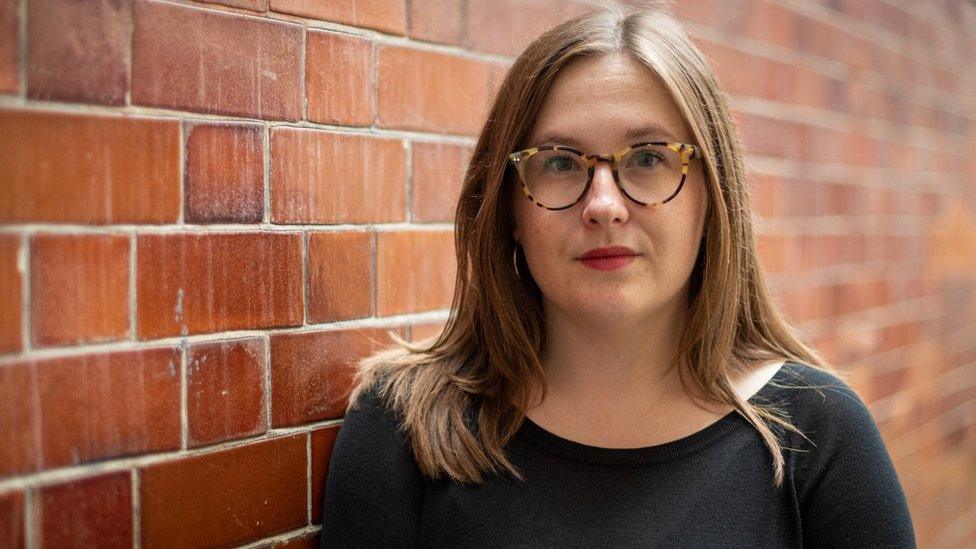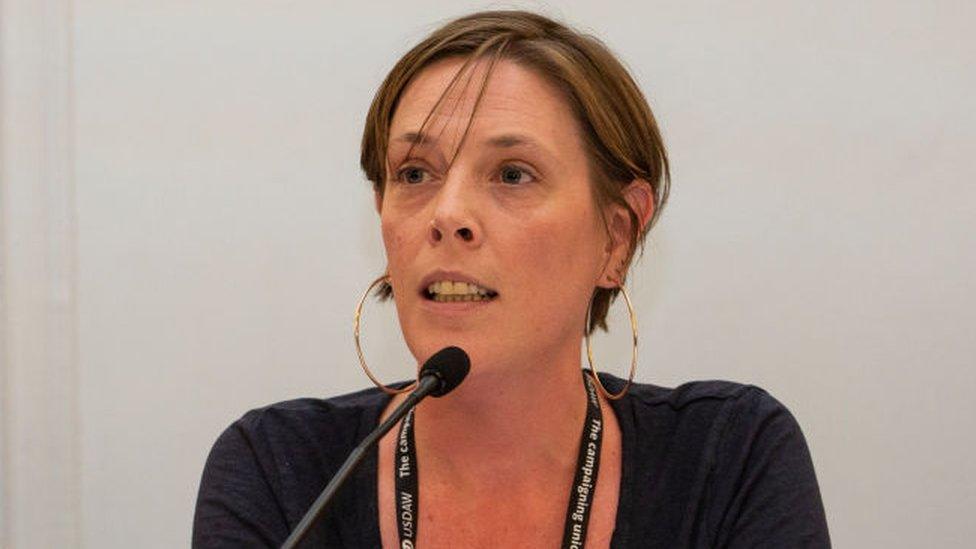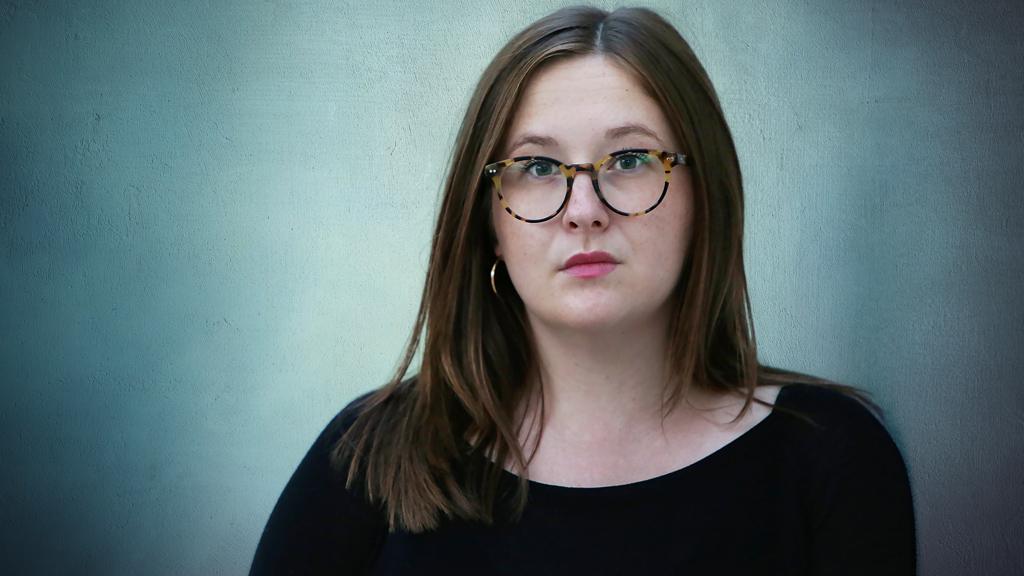Call for urgent victim rights review after sexsomnia rape case
- Published

The Crown Prosecution Service admitted it was wrong to drop Jade McCrossen-Nethercott's rape case
An urgent review of rights available to victims after their court cases are dropped has been urged by Labour.
It comes after the CPS apologised to a woman whose rape case was wrongfully closed over claims she had an episode of sexsomnia, a rare sleep condition.
The BBC found 60 cases in 2021/22 which the CPS admitted wrongly dropping, but the cases can no longer be pursued.
The CPS said decisions to halt cases were never taken lightly.
In all 60 cases, a victim won a review against proceedings being terminated, but this does not have the same strength as winning an appeal overturning the decision.
In each situation, the case had already been closed by the CPS "offering no evidence", which means the accused was found officially not guilty - despite never appearing in front of a jury.
Crucially, under the double jeopardy law, the cases cannot be reopened, even if a review requested by a victim finds it should have gone to trial.
Discovery of the cases up to September 2022 in England and Wales comes after the BBC reported the case of Jade McCrossen-Nethercott.
She is suing the CPS after her rape trial was dropped days before court - over defence claims she had had an episode of sexsomnia.
Jade was allowed to record the CPS meeting where she was told the rape case had been dropped.
Two sleep experts - one for the defence and one for the prosecution - concluded that it was possible she had had an isolated attack of the sleep disorder, which causes people to engage in sexual activity in their sleep.
After Ms McCrossen-Nethercott challenged the CPS decision under a system called the "victim's right to review" (VRR), an independent chief crown prosecutor found her case should have been taken to trial.
He said the jury would have been "more likely than not" to convict the defendant, which is one of the tests for bringing a prosecution.
But because the CPS had offered no evidence - meaning the defendant was formally acquitted - the case could not be reopened.
Instead, she received a letter of an apology from the chief prosecutor on behalf of the Crown Prosecution Service - which he accepted was likely to be of "little consolation" to her.
Labour said the case highlighted by the BBC showed the VRR system - which enables victims to challenge CPS decisions - was failing and urged the government to swiftly establish an inquiry into it.

Jess Phillips has urged the Attorney General to take action
In a letter to Attorney General Michael Ellis, shadow minister for domestic abuse and safeguarding Jess Phillips wrote: "I think that the average person in the country would be quite surprised to hear that a letter of sorrow is all an alleged rape victim can expect in cases where such errors are made.
"They would be further horrified to understand that it means that potentially dangerous offenders face no consequences."
She added Ms McCrossen-Nethercott's experience was "by no means an isolated case", with the VRR process identifying similar errors each year, "leaving victims of sexual and violent crimes with their own letters of sorrow".
When asked for comment, the Attorney General's office said it had received Ms Phillips's letter, "and will consider it and respond in due course".
Dropped cases
The Freedom of Information figures on dropped cases obtained by the BBC include four sexual offences and 31 "offences against the person", which cover a range of violent offences from harassment to murder.
Fraud, burglary and robbery cases were also among the terminated cases which, after victims asked for a review, the CPS later admitted should have been prosecuted.
The CPS said it had "huge sympathy" for victims whose cases could not be reopened because no evidence had been offered.
"We strive for justice in every possible case and decisions to halt them are never taken lightly," a spokesperson said.
In 2018, the High Court found that it was not unlawful for the CPS to close a case by offering no evidence before a victim was able to challenge the decision.
In his judgement, Lord Justice Holroyde concluded that allowing a victim's review before the prosecution was terminated would cause serious and unjustifiable delay in proceedings.
He added that the admission of error - and an apology - was an important outcome of a victim's right to review, even if the case could not be reopened.
The victim's right-to-review scheme gives complainants three months to seek a review of a CPS decision.
The CPS received 1,961 review requests in the year to March 2021. In 270 cases, the original decision was overturned.
The CPS said in many cases the prosecution could be reopened, however it was legally prevented from doing so if no evidence had been offered.
Dame Vera Baird, the former victim's commissioner for England and Wales, who recently resigned from the role, said the current right-to-review system was "unacceptable", and cases should be kept alive until a victim had been able to request a review.
"If the CPS don't change to help rather than hinder rape victims there must be legislation," she said.

When unexpected sleepwalking claims turn a rape case on its head, Jade fights back. Filmed over three years, this is the remarkable story of one woman's battle for justice. Will she win?

Related topics
- Published5 October 2022
